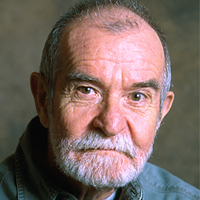Master Harold and the Boys by Athol Fugard: Introduction
Master Harold and the boys is a one act play by Athol Fugard. The play was at first banned in South Africa for the issue, it dealt with, but later on it was lifted and became a huge success. It was first staged at the Yale Repertory Theatre in early 1982. The play ran for 344 performances on the Broadway theatre and brought a new fame to the playwright.

Athol Fugard (11 June 1932)
The setting and the issue of the play depict the apartheid era of 1950 in South Africa. It vividly clarifies how the deep rooted and institutionalized racism can be the barrier in the friendship between two different colored people. This play is about apartheid. The South African government policy was based upon racism. Only white Africans were allowed to go to important places like libraries, restaurant and so on, but the black citizens of the same country are banned and restricted from many rights and freedom.
The play also includes the message of racism, it is about political domination and social emancipation. Racism was based on the differences of physical features. The play depicts the racial conflict in South African society, and how South Africa becomes one nation of two people, white and black; the conqueror and conquered. One can dominate only when one can separate, it is like the Nazism of Hitler. It is an anti-racist play. Hally's attitude toward Sam was due to the ego inside him.
This play is a semi-historical document. It presents the cruel reality of the contemporary South African Society. South blacks struggle against white domination through resistance, and nonviolence is their weapon against apartheid. Brotherhood exists with the dark truth of society. Spitting is a message of ambiguity in the bond of brotherhood.
Fugard's Master Harold and the boys provides us insights into how power has the corrupting effects on the people. It is a reflection of the way people of one group dominate the other because the society in which they live approves of this domination. It has poisoned human relation and leads to dehumanizing impact of that evil practice. Hally, who at first takes Sam as teacher, guide and father figure, spits in his face just because he is a white, an oppressor. To satisfy his anger and feel superior in front of Sam when Sam comforts him, he sits on the bench and orders him to call him a Master. The moment he rises on the bench, he feels he is powered by hierarchy and exercises his power.
